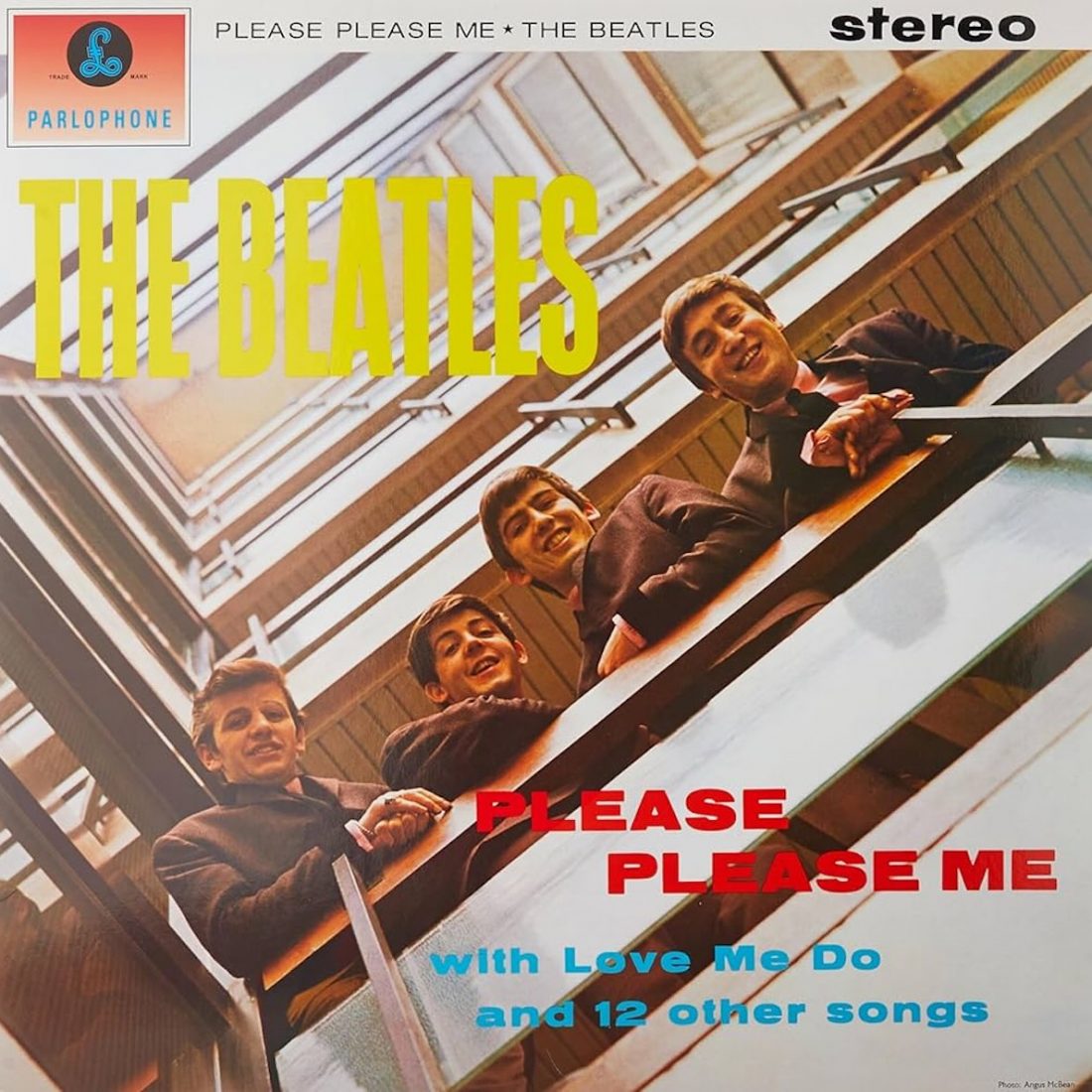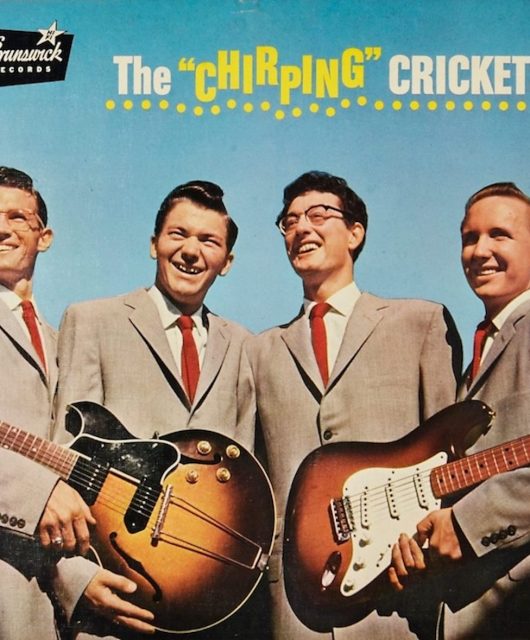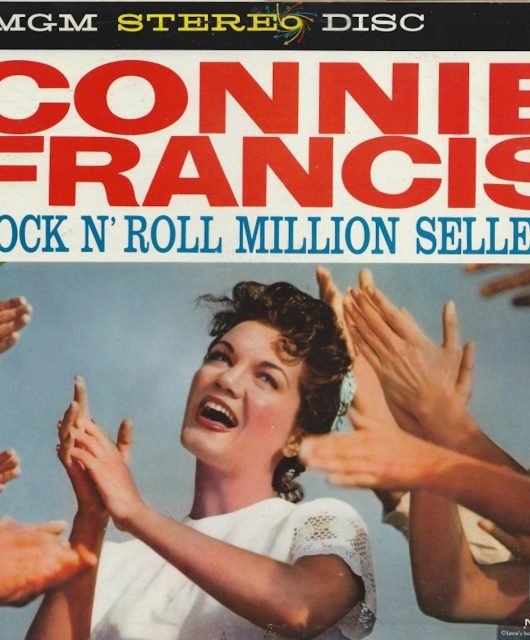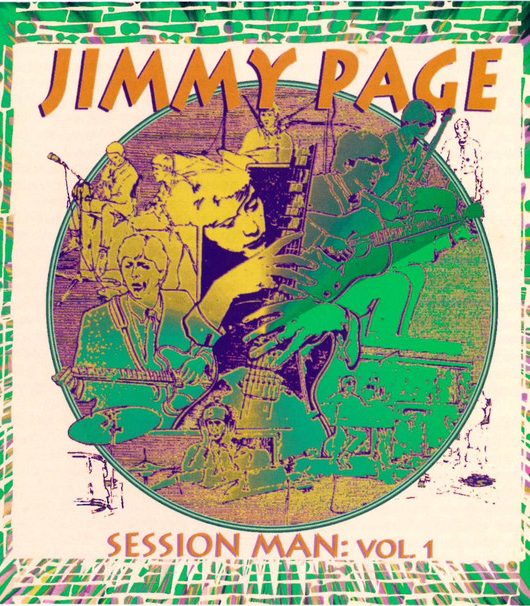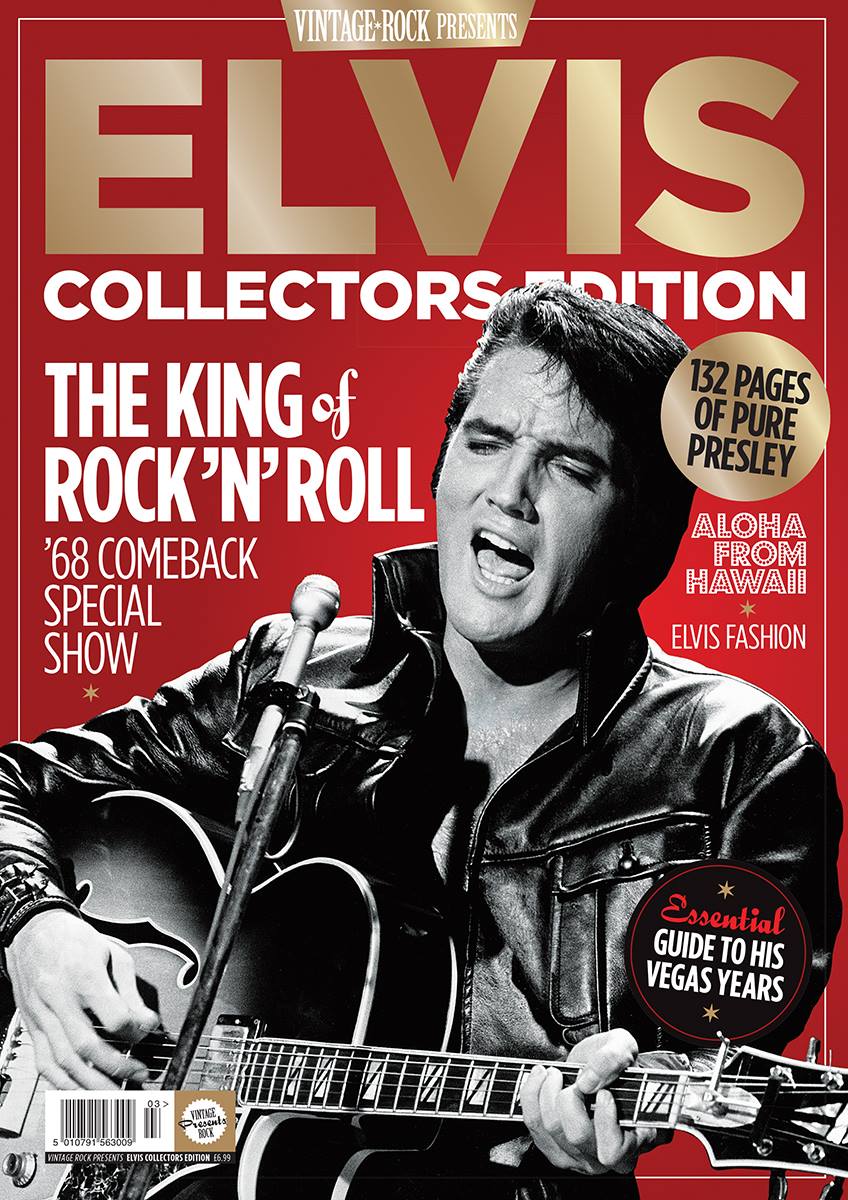What was it like growing up in Liverpool at the height of Beatlemania? Vintage Rock finds out with Colin Hall, the writer of two books on The Beatles – The Songs The Beatles Gave Away and PreFab!. Words by Douglas McPherson
“I’m making it sound like a Hollywood movie,” chuckles Colin Hall, the former custodian of John Lennon’s childhood home. “If you walked down a street there would be music coming out of every home. People would pop their head out of a window and they’ve got a moptop haircut and they’re playing a guitar. It was just like that. The sky was blue and all the girls were wonderful…”
Hall grew up to be the custodian of Mendips, John Lennon’s childhood home. For almost 20 years from 2004, he lived in the back bedroom of the house and spent his days showing fans around the semi-detached property at 251 Menlove Avenue, in the Liverpool suburb of Woolton, where the Beatle lived with his Aunt Mimi from the age of five until 23, when the group’s fame was taking off nationally and fans were starting to camp outside the house.
Hall is also the author of The Songs The Beatles Gave Away and co-author of Pre:Fab!, the memoir of The Quarrymen’s drummer Colin Hanton. Pre:Fab! has now been made into a feature-length documentary due for release soon.
Fab Four Fan-omenon
Hall was too young to see The Quarrymen or to witness The Beatles in their formative years at Liverpool’s legendary Cavern Club. “The circus had left town by the time I was old enough to go there,” says Colin. But he did see the band’s first TV appearances on the likes of Thank Your Lucky Stars and The Morecambe And Wise Show. And he saw the band on stage at the Liverpool Empire at the height of fan hysteria. “I went to see them,” he chuckles, “but I can’t say that I heard them!” Literally all anyone could hear was the screaming of female fans. “The screaming was like a ritual,” he continues. “The girls would scream throughout the show. It was just a roar of sound. My ears were whistling the next morning.”
It’s generally said that Beatlemania began on 13 October 1963. That was the night The Beatles headlined top-rated TV variety show, Sunday Night At The London Palladium. Buddy Holly had performed That’ll Be The Day and Peggy Sue on the same show five years earlier and helped to ignite the rock’n’roll revolution in the UK.
Introduced by Bruce Forsyth, The Beatles’ sang From Me To You, I’ll Get You, She Loves You and Twist And Shout. Watched by 15 million, their performance effectively brought down the final curtain on the era of American rock’n’roll domination and began a new epoch in musical history.
Scream Machine
Fans broke through a police cordon to chase the group outside the theatre and the next day’s newspapers were full of headlines about the new pop sensations. According to the Daily Herald: “Screaming girls launched themselves against the police – sending helmets flying and constables reeling.”
The term ‘Beatlemania’ first appeared in print in a Daily Mail headline, This Beatlemania, on 21 October 1963, although Scottish promoter Andi Lothian claimed to have coined the word at the band’s Caird Hall concert in Dundee on 7 October. Lothian had witnessed the astonishing rise of the band first hand, having first watched them play to “96 drunk young farmers and four women” at the Museum Hall in the Scottish town of Bridge of Allan on 5 January that year.
The term Beatlemania quickly gained traction. When the group kicked off their first official national tour as headliners on 1 November, the Daily Mirror carried the banner headline “BEATLEMANIA! It’s happening everywhere… even in sedate Cheltenham”. Pictures showed several women in a state of hysteria and the article reported, “Programmes were thrown on the stage – with telephone numbers written on them in lipstick.”
Actress Maureen Lipman attended a concert in Hull as a 17-year-old and reported 50 years later in the New Statesman: “Someone very close to me screamed the most piercing of screams, a primal mating call… I realised with an electric shock that the screaming someone was me.” Lipman added that, “Life, as I knew it, was never the same again.”
Top Of The Pops
However, when Beatlemania was hitting the headlines the media and general public were only just catching up with a cultural phenomenon that had been gathering pace since The Beatles released their first single Love Me Do a year before on 5 October 1962. By the time The Beatles began playing the Cavern in 1961, compere Bob Wooler was already calling them “the stuff that screams were made of.”
The rest of the country just needed exposure to what was working the Cavern’s audience into a frenzy from the start. And it didn’t take long for that to happen Love Me Do reached No.17 on the UK chart. By the following February, The Beatles were at No.2 with Please Please Me, and by May they topped the UK singles chart with From Me To You.
The latter held the top spot for seven weeks, the first in a record-breaking run of 11 No.1s with consecutive releases. Anticipation for their fourth single, She Loves You, was so great that thousands of copies were ordered before the title was known, and before it was even recorded.
Living On The Edge
“Please Please Me ignited the blue touch paper of the youth of the country,” says Hall. “The sonic quality of that record and From Me To You was different to anything else. They seemed louder. They seemed to have an edge. If you play them alongside the Cliff Richard records or The Shadows’ records of the time – and I like those Shadows records – The Beatles have an energy that was leaping out of the speakers in a way that those other records weren’t.”
The lyrics spoke to the teenagers of the early 60s, Hall adds. “There was a directness to the way those words were written and sung that appealed to people. It was speaking directly to them, because it was written by the guys that were singing them. That was rare at the time, and although we didn’t realise that then, we knew there was something different about The Beatles’ songs.
“Paul and John had taken the title of From Me To You from the letters column in the NME [the column was titled From You To Us]. They were writing as young people to young people about young people. It felt natural and real.”
Teen Dream
While the group was scaling the charts, fan reaction to them was becoming increasingly ardent on tours ostensibly headlined by artists including Helen Shapiro, Roy Orbison, Tommy Roe and Chris Montez. On their first national tour, with the 16-year-old Shapiro, The Beatles were bottom of a five-act bill but a contemporary reviewer noted that they “almost stole the show” and that the audience “repeatedly called for them while other artists were performing!”
“People like Helen Shapiro and Roy Orbison were realising that the real stars were lower down on the bill,” says Hall. “Word had gone around the teenage population because of those records. They were already a phenomenon.”
Orbison, in fact, realising that all the publicity around his tour was geared around The Beatles, opted to go on before the group that was supposed to be supporting him.
A couple of weeks after topping the bill on Sunday Night At The London Palladium, the foursome cemented their position in the cultural mainstream when they appeared before the Queen Mother, Princess Margaret and Lord Snowden at the Royal Variety Performance. Noting the well-heeled audience in the Prince of Wales Theatre, Lennon quipped: “Would the people in the cheaper seats clap your hands? And the rest of you, if you’ll just rattle your jewellery.”
The Daily Mirror acknowledged the group’s ubiquitous presence with an editorial headlined Yeah! Yeah! Yeah!, commenting: “You have to be a real sour square not to love the nutty, noisy, handsome Beatles. If they don’t sweep your blues away, brother, you’re a lost cause. If they don’t put a beat in your feet, sister, you’re not listening.”
Band Of Brothers
But not everyone appreciated the Fab Four’s influence. The headmaster of a Guildford school banned moptop haircuts, stating: “This ridiculous style brings out the worst in boys, physically. It makes them look like morons.”
Questions were asked in Parliament about the number of police required to hold back the crowds wherever the band travelled. Even the Prime Minister, Alec Douglas-Home, found his car immobilised in the crowd that gathered to greet The Beatles’ return to Heathrow Airport.
The attention could have derailed the creativity of the musicians at the centre of it, but Hall said it had the opposite effect. “They were ready for this, because they were a unit,” he states. “They were close. They’d been living in cramped conditions in Hamburg, performing for 12 hours a day. They were a band of brothers. They were aware of everything, because they were sharp, intelligent boys. But they had their own world within the world outside. So they were well equipped to survive the mayhem and mania.
“I think it accelerated their desire to make the most of what was happening to them,” he continues, “They had been a covers band, really, up until the point they signed with Parlophone. After that, their own writing became what they first and foremost wanted to record. So in that year, ’63-’64, they began writing in earnest. At any opportunity they could get, in hotel rooms or backstage, John and Paul got out their guitars and put their heads together to meet the demand for new product.
“They were living the life,” Hall continues. “I don’t think they missed out on anything. But they were young men. They had the energy and focus to think, ‘We’ve got an album coming up. Right, let’s write the songs for it.”
Taking Hold
Among the songs Lennon and McCartney wrote on the road was She Loves You, during their tour with Orbison. In December, The Beatles became the first act to replace themselves at No.1 when She Loves You knocked I Want To Hold Your Hand off the top of the UK chart, and stayed there into the New Year.
Also in December, the group became the first to form the entire record-reviewing panel on hit TV show Jukebox Jury. Their popularity pushed the show’s ratings from an average of 12 million to 23 million.
In the run up to Christmas, a six-minute, full-colour Pathé News documentary, The Beatles Come To Town, began showing in cinemas nationwide.
On Christmas Eve, they starred in The Beatles Christmas Show, a mixture of music and pantomime, with supporting artists including The Barron Knights, Tommy Quickly, Billy J. Kramer and Cilla Black, which ran at London’s Finsbury Park Astoria until 11 January.
Standing The Test Of Time
The quartet was named World Vocal Group and British Vocal Group in the New Musical Express poll of the year. Perhaps even more prestigiously, The Times music critic William Mann called Lennon and McCartney the outstanding English composers of 1963.
Three days into the New Year, American viewers saw their first clip of The Beatles on The Jack Paar Show. The Beatles’ battle for Britain had been won and the invasion of America was about to begin.
The music, meanwhile, was set to live on with Hall’s generation and generations that followed, far outlasting the screaming frenzy of Beatlemania. “Your parents would try to trivialise it,” he says. “They’d say, ‘You won’t be listening to them in five years, or 10 years.’ They were dismissive. But the music was valid. The melodies were beautiful. The lyrics were intelligent and poetic. They weren’t trite. They could stand the test of time.
“The Beatles took music into the hearts and minds and souls of a whole generation who recognised that it wasn’t just music for young people. It was music that you could carry forward beyond being a young person. There was a substance to it that was going to transcend being just a teenage phenomenon.”
For more on Colin Hall and his books click here
Read More: Top 20 Merseybeat Songs

